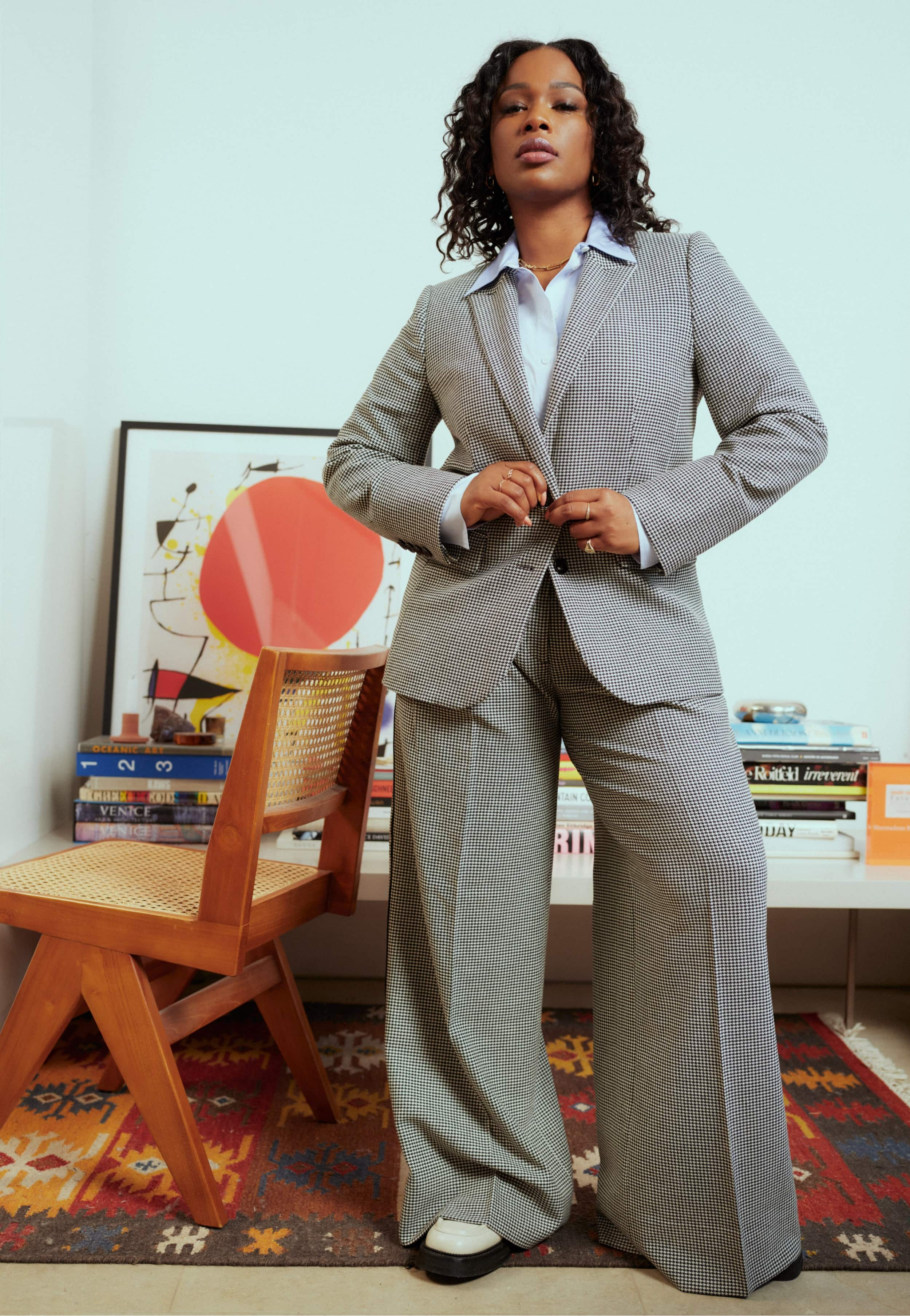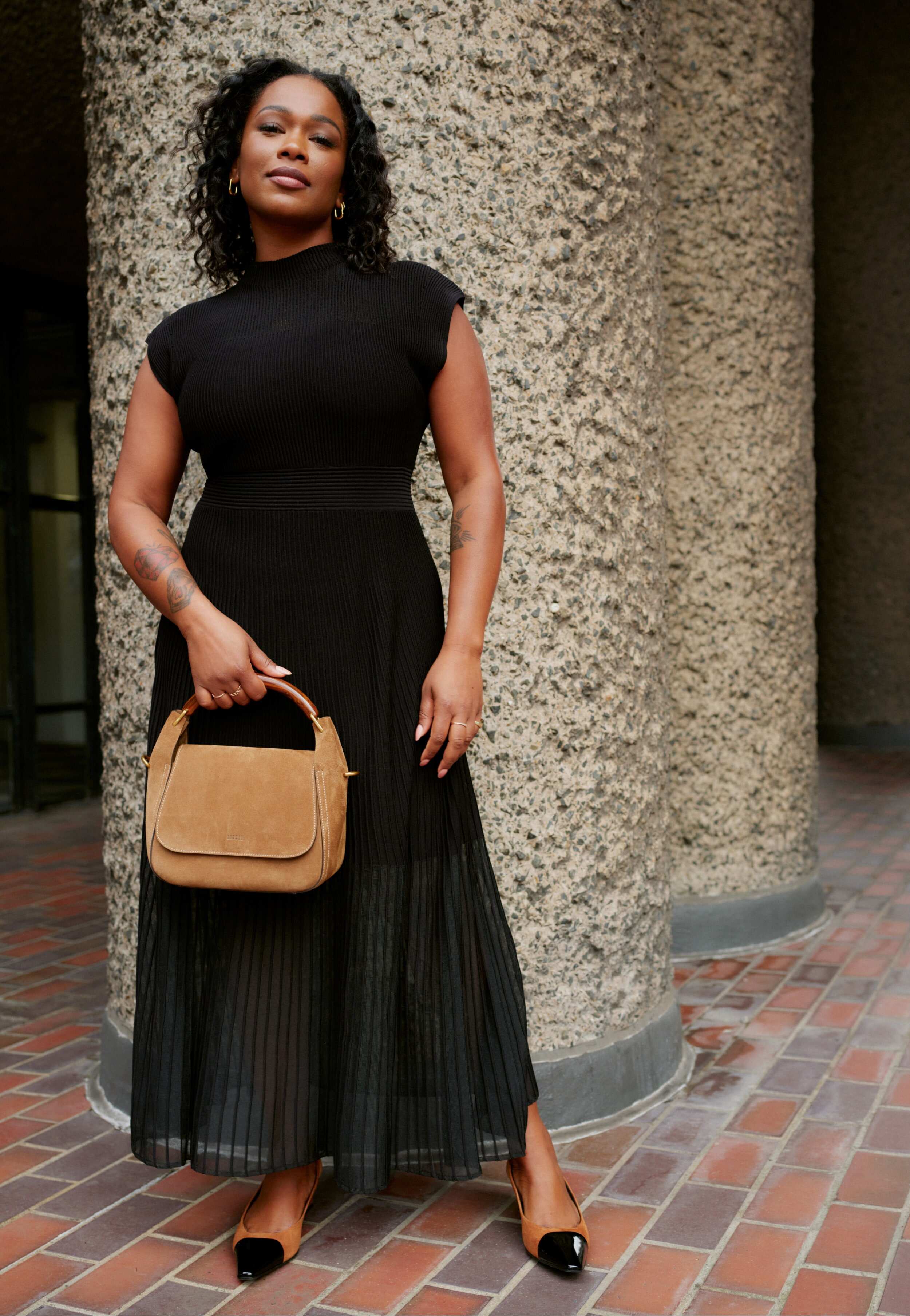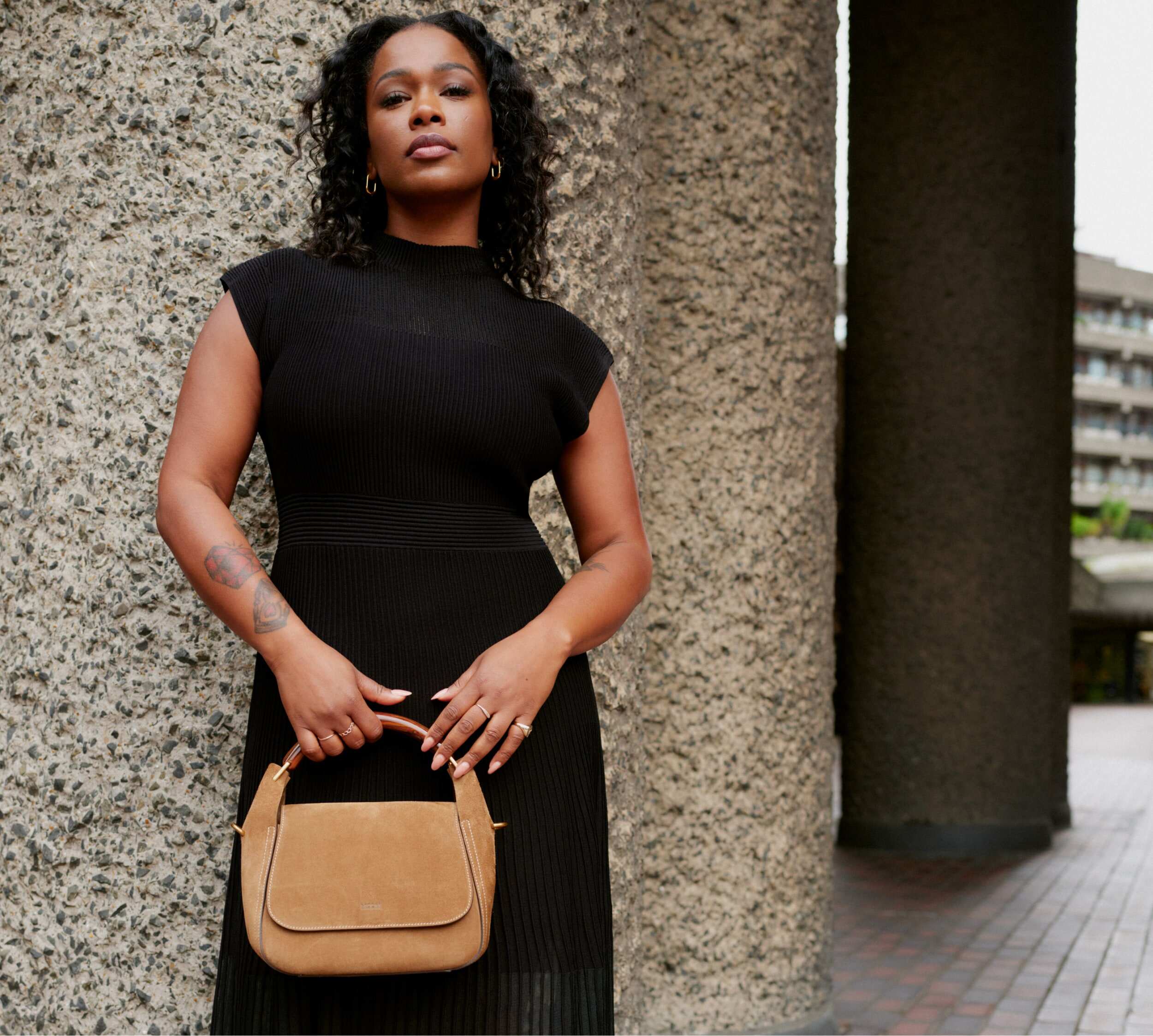There is nothing quite as uplifting as an honest conversation with someone you admire. That is how we had the idea for ‘In Confidence’ – a series where we sit down with powerful, inspiring women who are trailblazers in their own field. We will have open conversations about how they have navigated their career successes and challenges and what balance means to them. At the same time, we will explore how they find confidence, whether that is with a powerful uniform they rely on every morning or small daily rituals.
For our second instalment of In Confidence, we sat down with the entrepreneur Sharmadean Reid.
She was 24 when she had her first business idea – the salon WAH Nails, which celebrated creative nail art, at the time an innovative concept. Reid quickly became a powerful voice in the beauty industry – she helped to spearhead the #BringBeautyBack campaign during the pandemic when pubs could open, but salons remained shuttered. In 2018 she launched a software company called BeautyStack, a beauty bookings app, which sparked the idea for her media platform and community for women called Stack World. A network that supports women to reach their next milestone, with content, workshops, coaching and advice, Stack World arms members with useful tools and a support network. At the same time as building multiple businesses, she has learned how to protect her own mental health and find a way to balance entrepreneurship with motherhood, which she explores in her upcoming book New Methods For Women. It functions as a manual for women navigating modern day stresses through a series of 49 powerful essays that explore work, parenthood, relationships and more.

Can you tell us about your book New Methods For Women?
“When I was pregnant at 26 I was realising ‘oh, what I put in my body is actually going to affect somebody else.’ So I started measuring my hormones, my mood and my feelings. After that, every time I was stressed I would revert back to some of those tactics for managing my mood, my diet and who I was hanging out with.
"Then when I was 27 I started getting really bad panic attacks – at the time I was running a fast-growing business, had a toddler, I was separating from his father and it was all a lot. I realised if I didn’t try something new, nothing was going to change. So I started experimenting with living very consciously and intentionally to control the outcome of my feelings."

"The book has 49 essays and each essay explores something that I tried. This is my manual for how I overcame those things to achieve this level of mental freedom and autonomy. I definitely still have issues, but they’re not the issues that I would have had when I was 20. The way people treat me now is so different and it’s not just because I’ve grown in my career. It’s the energy I’m emitting because of my methods.
"So much of the burnout that women and marginalised communities face is down to wider societal structures. I think anxiety, stress and burnout can feel like a very personal thing and we don’t always look at how your macro environment is contributing to that. What I’m trying to do with the book is say that the system is broken. There are hurdles that we have to overcome within ourselves and the way that others treat us."
I think there’s such a power in being able to enjoy your own company and sit with your own thoughts and not be terrified by them.
The Stack has done a great job at creating such a solid community and you’re quite vocal about how you lean on your own communities and mentors. How did you start building it and what advice would you give to others looking to grow a community?
"I think for me, community is a really overused word that has become this thing that businesses say they have because it seems like a check box. It’s like saying you have a website. How I view the Stack community is if the people within it are able to connect with each other without me. It’s not having an audience where I’m the megaphone. You have to create this playground of like-minded people.

"I think that I have always been a gatherer of people since I was a teenager. It’s funny because anyone who knows me knows that once the party’s going, I disappear. I don’t need to be in it. Even now, I’ll do an event for The Stack and then once my bit is done, I’m gone and everyone else is partying. I think that's because I'm an ambivert. I get such pleasure from hosting and being around people. But then I do get incredibly drained and I need to be alone. I always spend Saturdays alone and it’s my favourite thing to do. I think that community is critical for health, longevity and sanity. But I also think there’s such a power in being able to enjoy your own company and sit with your own thoughts and not be terrified by them."
I’m a big believer that you can achieve anything you want to achieve, but it’s important to be realistic about the perception people have when they look at you.
Are there any key bits of advice or learnings you have received that have become ingrained in your every day?
“So many of my lessons and learnings have come from male leaders because that is what was documented. A book I read that really changed my thinking was Ray Dalio’s Principles. I read a lot of Stoic meditations, Stoic literature and business books. They are absolutely brilliant, but I wondered what their advice might look like through the lens of a Black woman. So I was thinking ‘can I apply the things they’re saying when I have different barriers put in front of me?’
"I’m a big believer that you can achieve anything you want to achieve, but it’s important to be realistic about the perception people have when they look at you. People treat you differently in a job interview process when you remove race or gender – these things have been proven. What would it look like if we had a body of advice, philosophy and business books that were just written by women or people of colour?"

"In the introduction to my book, I’ve put some great books written by women that do exist – but it’s only a handful. There’s an incredible book by a sociologist Mairon Milner called Life of One's Own that was written in 1934. She did seven years of experimenting on what makes her happy and it’s so ahead of its time. I was blown away by this book because how brave do you have to be to be able to say I am going to live with complete autonomy in an era where women couldn’t even have bank accounts or buy property."
Very early on, I set a boundary that I’m not the default setting for cooking, cleaning, crying.

You seem very in tune with your thought process and quite quick to interrogate why you’re feeling a certain way?
“That is what, in the book, I call muscle memory – you have to do something over and over again until it’s automatic. It takes practice. You might need a weekend and space to do it. You might need to retreat. You might need a therapist to do it, but the more you do it, the more that it comes quickly and naturally. Another thing I talk about in the book is apologising and holding yourself to the same rules that you expect from other people. Early on in my leadership journey, I would wait a very long time before realising “Oh I did that thing and I should apologise to that person for it.”

"Now, if I say something in a meeting that I think a person might be a bit upset by, I’ll apologise straight away to set an example. I remember saying to someone “sorry I was a bit ratty, I had bad news today”. And then a month later, she did the same to me when she was also stressed about something outside of the workplace.”
The way people treat me now is so different and it’s not just because I’ve grown in my career. It’s the energy I’m emitting.

What is your advice for women who invest in their careers while juggling it with motherhood, because a lot of the system is not set up to support parents?
"I think it’s hard because everyone’s personal circumstance is so different. For me, I co-parented 50/50, so I had half of the week to invest in my career and then half of the week to invest in my parenthood. So I think it would be wrong for me to say this is the only way to do it, because my situation is not that common. What I would say is that there was an element of 50/50 before we separated because we were both working from home and we were both entrepreneurs. Very early on, I set a boundary that I’m not the default setting for cooking, cleaning and crying. It was really critical to the relationship between me, my son and his father. It truly is equal in the most wonderful way, and the bits that aren’t equal I would say are more personality driven than gender driven. I think the most important thing is to make those activities in the home 50/50 and gender neutral from day one. It’s so hard to change if you’re the one that is always doing everything. I also really love it all. I love work. I love motherhood. I’ve found a method that works for me."
